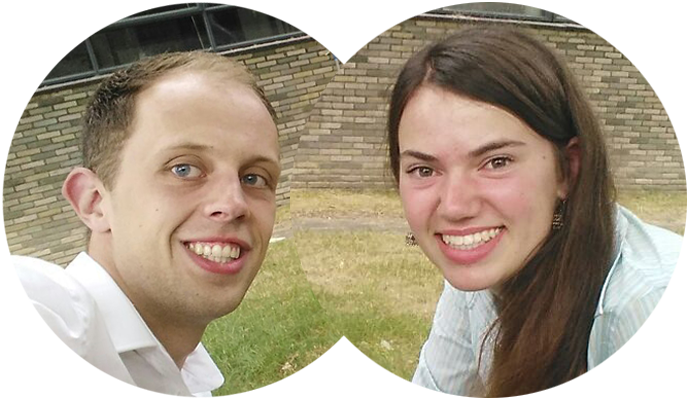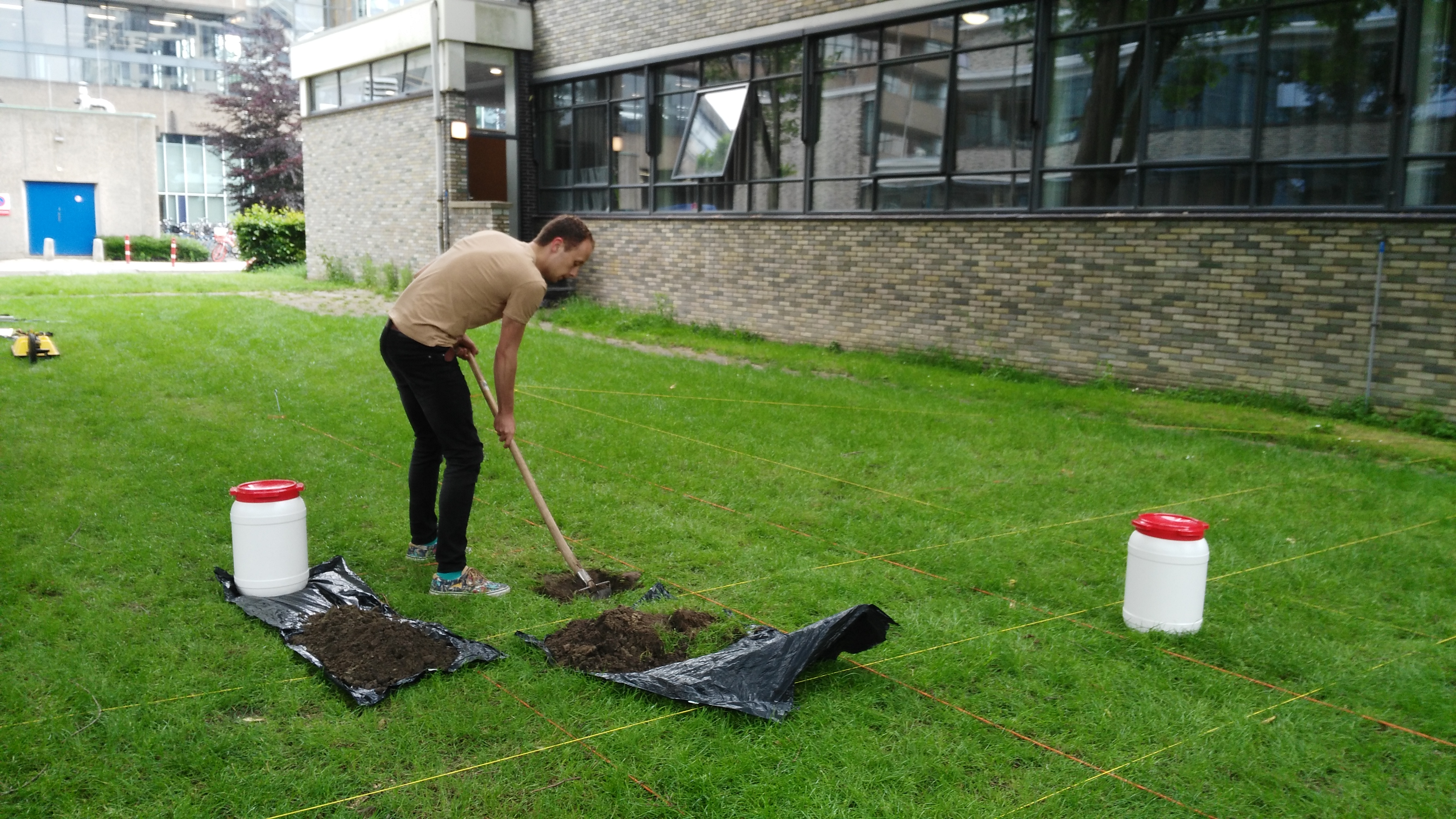Bachelor thesis - Koen Harms & Anika Vroom
During the bachelor of Earth, Climate and Technology you learn to map the subsurface in different ways for sometimes somewhat unexpected applications. Koen Harms and Anika Vroom show us how they used knowledge from the bachelor for their Bachelor Thesis in a forensic investigation.
Looking into the subsurface
“When solving forensic cases, it could be very useful of you did not have to search and dig in the shallow subsurface, but if you could directly ‘look’ into it using a subsurface radar. Such a radar is usually applied to localize sewage systems or to interpret groundwater conditions. The application for forensic purposes in the shallow subsurface is uncommon and results are greatly dependent on the conditions of the soil. A better understanding of the use of the radar for this application is therefore needed in advance. We were able to assess this radar use in cooperation with the Dutch Forensic Institute (NFI) and the police.”
The experiment
“We obtained a piece of land of 4.5 by 4.5 meters where we buried different objects: an empty barrel, a barrel filled with steel and an empty hole as a test. We assessed how the radar reacted to these various objects on different electromagnetic frequencies and in different soil compositions. Soil conditions have a large impact on the results of the radar, therefore it is of importance to have a good insight in the subsurface conditions here in the Netherlands. Knowledge on for example the local climate, the soil type, water management and vegetation may help to interpret the radar data correctly.”
It went differently than expected
“During lectures we became familiar with the subsurface, we learnt how radar waves travel through the soil and we were taught how to analyze the radar data. In practice, we were caught by many surprises. We learned how many factors influence the behavior of the radar, such as nearby cars, rocks, cables, tree roots or pieces of metal in your shoes and clothing. Even the weather made us change our investigation schedule and at times even the equipment let us down. This did teach us how to work with different programs and different supplies.”
Follow-up projects
“Our project was a test to see whether a cooperation between TU Delft and the NFI/police was possible, and it worked! That is the reason there are now multiple bachelor thesis in the field of forensic research. Due to the changing local soil conditions there is still a lot that can be investigated.”



